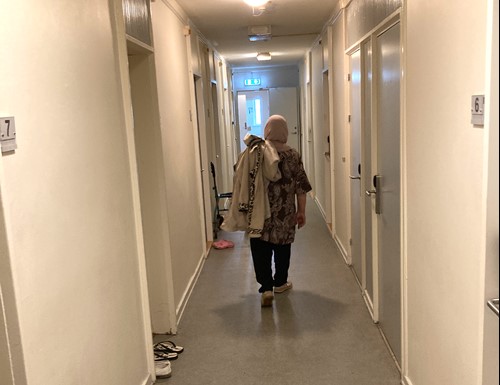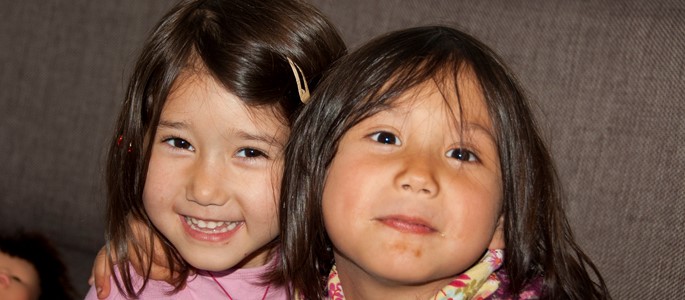New practice for women and girls from Afghanistan
The Refugee Appeals Board lowers threshold for burden of proof after historical announcements from UN and Sweden
The takeover from Taliban has, not unexpectedly, turned out to be a serious increase in the massive oppression that Afghan women have been exposed to for generations. After the takeover in August 2021, the Refugee Appeals Board put all Afghan cases on hold, and as they were treated again from February 2022, it meant a significant rise in positive decisions. Half of the cases which had been rejected were now granted asylum. Surprisingly, a single woman without male family network was granted convention status; she would previously have been referred to apply for humanitarian permit. Afghans have normally been granted protection status even if they were persecuted by the Taliban, but are now granted convention status, which offers a stronger protection.
On December 15th 2022, the Refugee Appeals Board sent out a remarkable press statement about changes in practice for women and girls from Afghanistan. The Board will still make an individual assessment but will "relax the burden of proof" when it comes to the risk assessment.
The Board states: "The coordination committee (…) finds however that in cases concerning Afghan women and girls, a relaxed assessment of proof should be introduced with reference to the arbitrariness and insecurity with which Taliban conducts its authority, as well as the continuous deterioration of conditions for women and girls which can be read from the latest country of origin information. This implies that the threshold for when a female Afghan asylum seeker has made it likely that she is at risk of persecution must be lower than in a normal asylum case. (…)
The statement from the committee can have influence on approximately 30 pending cases at the Refugee Appeals Board. The Board will take initiative to re-open the cases concerning female Afghan citizens where the Board has previously confirmed a rejection of asylum and where the person is still in return position."
The last part will have an effect for an elderly woman who has been living in deportation centre Kærshovedgård since summer. She has an adult son in Denmark and an adult daughter in the USA. In Refugees Welcome we have been working for months to prepare her case for a re-opening, but it seems like this will happen on its own. This is also important for the evacuees of which more than half are women, when their permits under the Special Law expire.

Afghan woman at Kærshovedgård
The new practice is mainly based on a new, sensational assessment from the Swedish asylum authorities. On November 30th, Migrationsverket published a juridical assessment of protection need for people from Afghanistan. The judgement was that "all women and girls in the country, also with male family members, through an accumulation of various conditions are at risk of being exposed to discrimination on such a level and with such serious limitation of their freedom and rights that this amounts to persecution. And asylum-seeking woman or girl from Afghanistan should consequently be viewed as a refugee according to her belonging to a social group, in this case, her gender."
The Swedish assessment is unique, as there are no previous examples of all women from a certain country should be granted asylum, simply because of her gender.
The UN Special Rapporteur on Afghanistan, Richard Bennett, visited a conference in Copenhagen which DRC Danish Refugee Council held on November 28th, and to which both the Refugee Appeals Board, Danish Immigration Service and Refugees Welcome were invited. He stated that the situation for women and girls in Afghanistan is worse than in any other country in the world, and that it probably amounts to gender persecution. The Refugee Appeals Board quotes some of his judgements in their press release.
According to the UN rapporteur, Afghan women are exposed to a staggering regression in their enjoyment of all basic human rights:
• Education: secondary schools closed, restricted faculty choices
• Access to livelihood curtailed
• No political inclusivity nor access to public life, shrinking civic space
• Mahram policy depriving women of agency (accompanying of male family member)
• Reported surge in child marriage and child labour
• Increase in violence against women & girls, incl. domestic violence
• Strain on mental health and well-being
• Clamp down on protests and protestors
• Closure of parks & gyms.
In 2022 until October 31st, 318 asylum applications from Afghans have been filed, of these are 144 unaccompanied minors. 5 have had their residence permit revoked or denied extension. The recognition rate for Afghans rose from 3% in 2021 to 80% in 2022. (All numbers form Immigration Service)
Photos: Michala Clante Bendixen. The two little girls are photographed at asylum centre Kongelunden in 2009, they belong to the persecuted Afghan minority hazara.
As a member you ensure our continued work,
including for Afghan women


